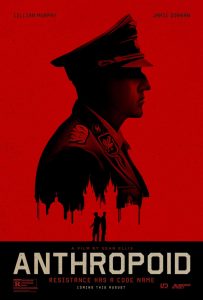
The purpose of adapting historical events into films is to give the viewer a feel of the event. To recount the actions that took place is the reasoning for a textbook’s existence. A textbook should act as a lesson, while a film should act as an emotion. The film should act as a companion piece to the textbook, not be a
“Anthropoid” is an adaptation of a textbook. Sean Ellis’ direction is workmanlike, bringing the events of Operation Anthropoid to screen solely to get from point A to point B. Expository dialogue is littered throughout the script, co-written by Ellis & Anthony Frewin, to clue the audience in on the proceedings. This approach is fine so long as it’s anchored by a feeling of immediacy and dread. In watching the soldiers play out their mission, the audience should always feel as if they’re in danger at all times. It doesn’t matter if they’re hiding in a civilian’s home partaking in dinner, their lives should always be at risk.
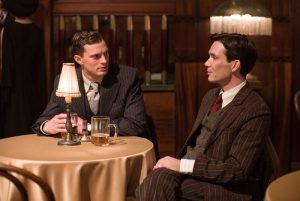
Josef Gabcik (Cillian Murphy) views his mission as such, one in constant threat. His partner, Jan Kubis (Jamie Dornan), is more relaxed when in hiding, which should cause conflict, but it’s never fully realized. There are moments of argumentation, sure, but they feel too manufactured. The same goes for when danger presents itself, such as when they must hide in a corner shop from the Nazis who search the premises like hound dogs.
Operation Anthropoid is the assassination attempt of Reinhard Heydrich (Detlef Bothe), the Butcher of Prague. He is the head of the Reich Main Security Office, RSHA, aiding Adolph Hitler in overtaking Czechoslovakia. To assassinate him would shake the foundation of the Final Solution, though many don’t see it as such. There are scenes early on when the two men argue with other officers, such as Uncle Hajský (Toby Jones), on the merits of their mission. This adds much-needed depth to the proceedings, though its impact is never fully felt.
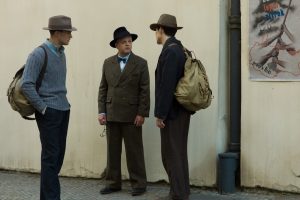
That’s the main issue with “Anthropoid:” the lack of impact. I never got the sense that the soldiers were in danger, even when they were. Involving civilians, such as Marie Kovárníkovasá (Charlotte Le Bon) and Lenka Fafková (Anna Geislerová), whom they eventually fall in love with, only serves to adapt the truth. The severity of their involvement is never felt, only observed.
There are two sequences where impact is felt, but only because it is difficult to tarnish the horrors of war. One involves the raiding of an innocent family’s home, who had sequestered the soldiers early on. They are savagely beaten until they reveal answers, which they don’t (instead downing a cyanide capsule to escape torture). Then there’s the finale, a shootout between the soldiers and the Reich which takes place at a church. This battle is tremendously choreographed, with the sense of dread missing earlier finally surfacing. Attention to detail in war tactics, such as drowning out the basement to bring the soldiers to higher ground, is impeccable! I imagine history teachers showing this scene to their classes to give comprehension to their lesson plan.
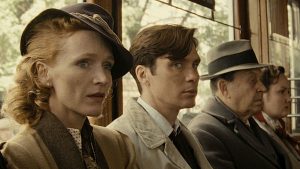
I also imagine teachers will show the assassination attempt of Heydrich for the same reason. I purposely neglected mentioning it as a sequence of impact, as I didn’t feel it this time around. The workmanlike direction is at play again, with the failed assassination acting as a transition to the finale. It exists to move the story along and service history, not involve the viewer emotionally. A fine example to show the uninitiated, but not complementary to the film’s tone.
Fine would be a good word to describe “Anthropoid.” The performances are fine, the accuracy is fine, and the layout is fine. The film, however, is never involving. I felt like I was sitting in on a cinematic lecture, not a gripping adaptation. The shaky camerawork, which would feel right at home in a Paul Greengrass film, is meant to highlight the intensity of the situation and imbue the viewer, but fails to do so.
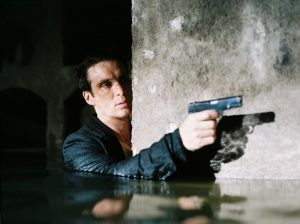
No doubt teachers will show scenes from “Anthropoid” in class, but I suspect none will show the film in its entirety. If they do, it’s most likely just to kill time.
Final Rating: C
